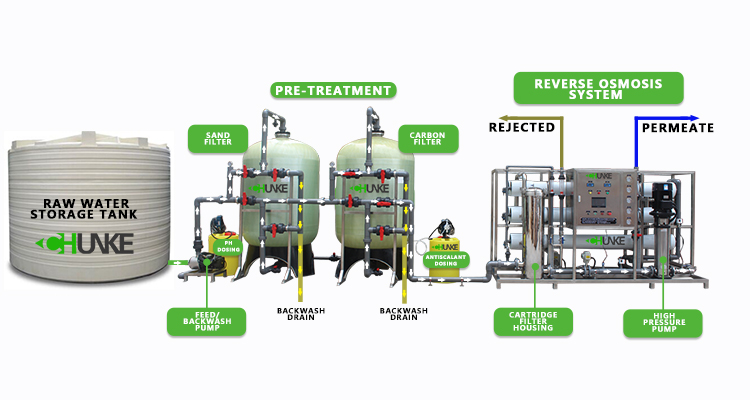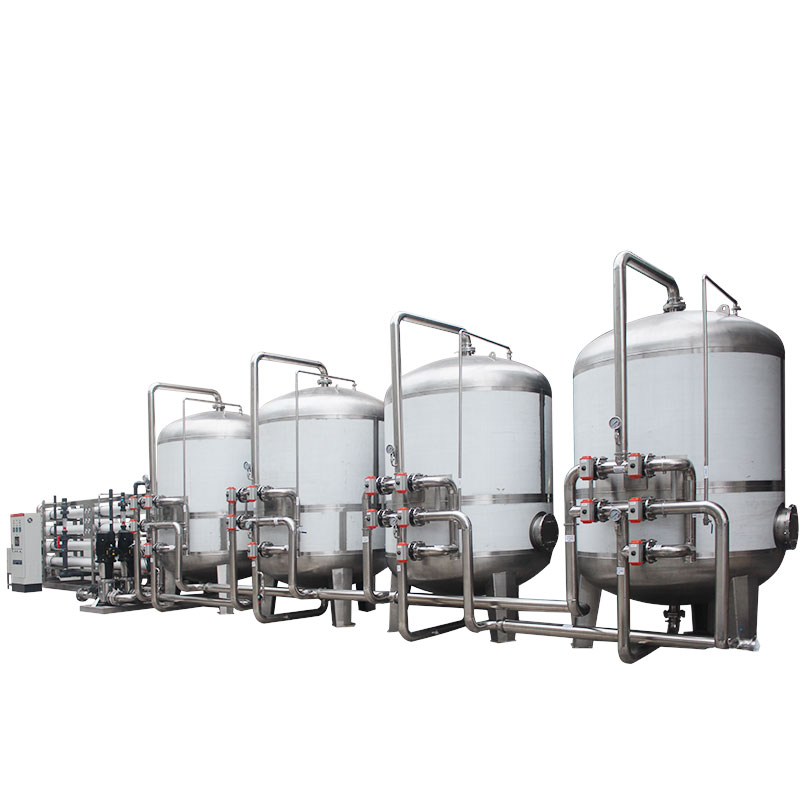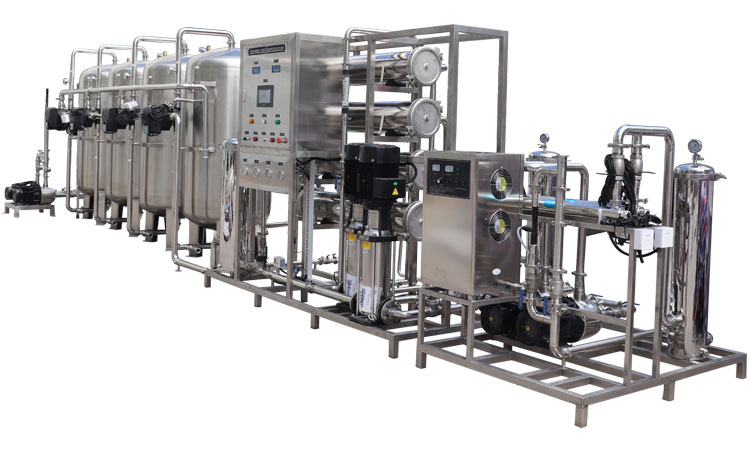Is drinking reverse osmosis water healthy?
Introduction: Reverse osmosis technology is widely used in water purification systems, and many people have doubts about the health effects of drinking reverse osmosis water. However, existing research and expert opinion suggest that drinking reverse osmosis water has no significant adverse health effects. This article will discuss the healthiness of drinking reverse osmosis water, the mineral content of reverse osmosis water and its impact on the human body, as well as the comparison between reverse osmosis water and other water purification methods.
Is drinking reverse osmosis water healthy?
Drinking reverse osmosis water is healthy for most people. Reverse osmosis technology provides people with purer drinking water by removing most of the impurities in the water, including heavy metals, chemicals and bacteria. This technology works by passing water through a thin, semi-permeable membrane under high pressure, which effectively removes contaminants from the water.
Although reverse osmosis water has a high degree of purification, some people worry that the purity of this water is too high, which may lead to a lack of minerals needed by the human body. However, for the vast majority of people, this is not a problem because they can get enough minerals through other means, such as diet. In addition, for some areas with poor water quality, the use of reverse osmosis water may greatly improve the health of residents.
It's important to note that if you have certain health conditions, such as acid reflux or gastrointestinal ulcers, you may want to consult with your doctor to determine whether drinking reverse osmosis water is right for you.

What effect does the mineral content of reverse osmosis water have on the human body?
Reverse osmosis water is usually lower in mineral content because the reverse osmosis technology removes most of the minerals in the water. This does not have a negative impact on most people because they can get enough minerals from other dietary sources. However, this may have an impact on some people, particularly those who do not get enough minerals from their diet.
Some experts suggest that in order to ensure that the body absorbs enough minerals, people who drink reverse osmosis water can take supplementary measures, such as adding a small amount of mineral supplements to their drinking water. In addition, choosing mineral-rich foods such as vegetables, fruits and whole grains is also an effective way to maintain the mineral balance of the body.
In some cases, the low mineral content of reverse osmosis water can be beneficial. For example, for those with high blood pressure or kidney disease, drinking low-mineral water may help control the condition. Overall, the effects of the mineral content of reverse osmosis water on the human body vary from person to person, but for most people, this water is still a safe and healthy choice.

What is the difference between reverse osmosis water and other water purification methods?
There are obvious differences between reverse osmosis water and other water purification methods. Reverse osmosis technology removes more contaminants than common activated carbon filters, including heavy metals, chemicals, and bacteria. This makes reverse osmosis water more effective and reliable in purifying water quality.
However, the production cost of reverse osmosis water is higher because the reverse osmosis system requires complex equipment and higher energy consumption. In addition, the water yield of reverse osmosis water is usually low because a certain amount of wastewater is produced during the purification process. Therefore, for some areas or households, this may not be the most economical option.
In comparison, other water purification methods, such as activated carbon filters and UV sterilizers, are generally less expensive, but they may not be as effective at removing certain contaminants as reverse osmosis systems. Which water purification method you choose depends on your personal needs, local water quality, and budget.

Summarize
Overall, drinking reverse osmosis water is healthy for most people. Reverse osmosis technology provides an efficient way to purify water and remove most contaminants from water. However, since reverse osmosis water has lower mineral content, people may need to ensure mineral intake through other dietary sources. In addition, reverse osmosis water and other water purification methods have their own advantages and disadvantages. Which method to choose should be decided based on personal needs and actual conditions. No matter which water purification method you choose, ensuring the safety and health of your drinking water is always the most important thing.




